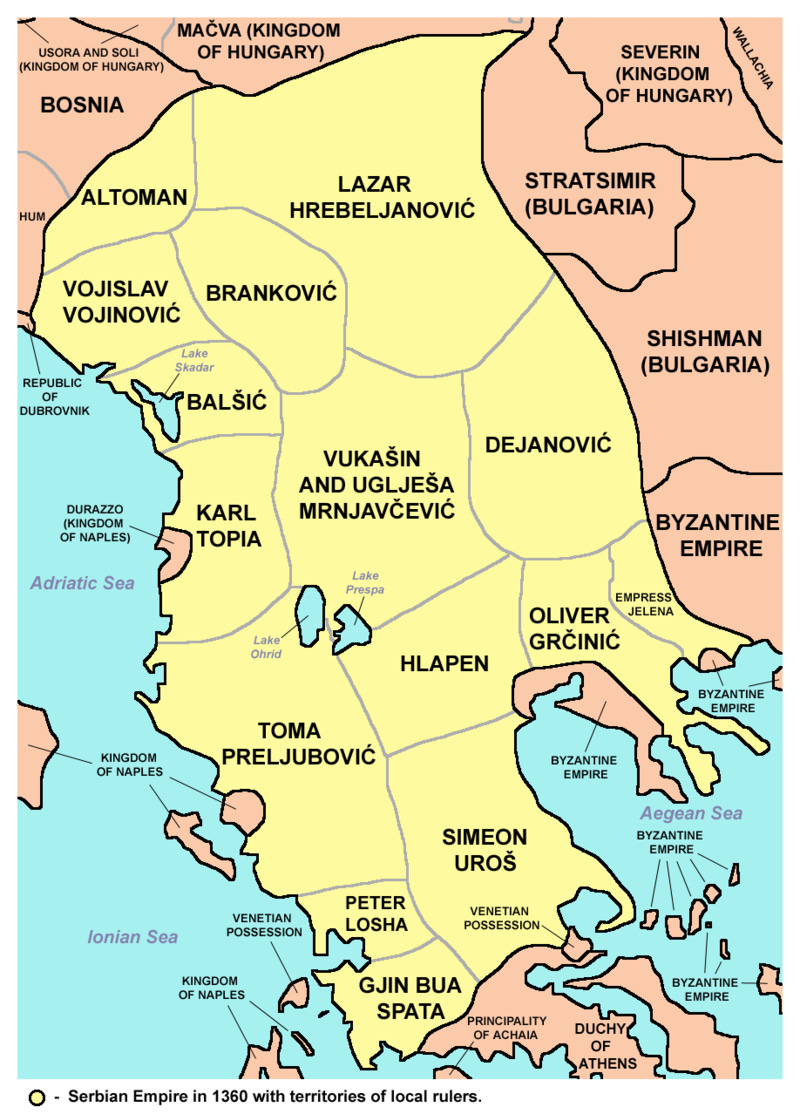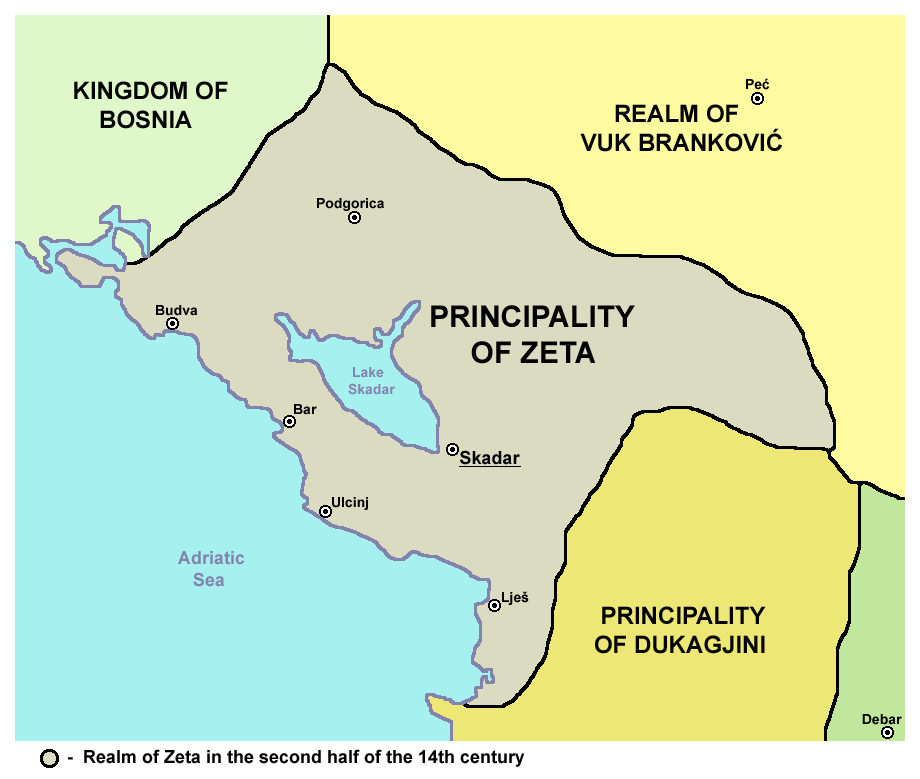The Balsha Family of Early Montenegro
Interesting Stories from a 14th Century Family in Early Montenegro
Happy New Year, everyone. I hope you have a wonderful year, filled with love, financial success, good health, and happiness. One of my goals for this years is to continue writing, and I am happy to share my learning and writing with you.
For more than a year, I have been learning about the Albanian and southern Balkan region in the time period of 1350-1450. This is the time period when the Ottoman Empire was first expanding into southern Europe, and when Albanian leaders were trying to prevent the Ottomans from taking over their territory. It's the time period of Skanderbeg, the Albanian national hero, who was largely responsible for defeating the Ottomans, and it’s also the time period of the Fall of Constantinople, when the (Eastern) Roman Empire finally ended.
During this 100 year period, Albania and the surrounding territories of Macedonia, Kosovo, Montenegro, and southern Serbia, didn't have a strong, centralized power that could create a united empire in the southern Balkans. Instead, many leaders established their own regional principality for their family. As you can see on this map, the region was controlled by several different leaders, including Altoman, Prince Lazar, Bronkovic, the Balsic / Balsha family, Vukasin and Ugljesa Mrnjavcevic, the Dejanovic family, and others.
One of these regional rulers was the Balsha family of Montenegro (which was called Zeta, Dukla, or Doclea at the time). I find the Balsha family very interesting, and I want so share some information about them.
The Serbian Empire
Let me back up a little… In the early 1300s, Serbian rulers (mostly Stefan “Dushan the Mighty”) expanded the Serbian Empire down into Greece, and for a few decades, the region was united under Serbian control.
At that time, Zeta was part of the Serbian Empire, and Balsha Balsic was a military leader and regional governor for the emperor. Zeta faces the Adriatic Sea, and it includes the city of Ulcinj, where my family used to go on vacations when I lived in Yugoslavia in the late 1980s.
Emperor Dushan died unexpectedly in 1355 at the age of 47, and his young son Stefan Uros inherited the throne. However, young Stefan did not have the military command that his father did, and many of the emperor's generals refused to support Stefan Uros, and they defected away. They left the empire and created their own principalities with themselves as ruler.
I am not totally sure how this worked historically. I am thinking that young Stefan didn't have the military command to force these southern nobles to be part of the empire. That also probably meant that young Stefan could not defend these southern nobles against others who wanted to seize their territory. In return, the southern nobles would no longer obey a request from the young king to send military forces to help him against other kingdoms such as Bulgaria, Romania, the Ottomans, and the Bosnians. It also probably meant that any tax collections were kept by the Balsha family and were not sent to the Serbian king.
The Balshas in Zeta
In 1355, Balsha Balsic set up his own kingdom in Zeta. Then, once his three sons became older, they started harassing their neighbors, and they used force to take over their neighbor's territories. By the early 1400s, the youngest son (also named Balsha Balsic the second) became one of the most powerful leaders of the area.
As I learn about the history of this family, I am interested in how they managed their growing kingdom. In some cases, they may have taken control of a town through an arrangement: an old mayor may have worked with the Balsha family in return for greater security.
But there are also speculations of murder and rule by force. In one instance, one of the Balsha sons married the widow of a nobleman who died suddenly. What happened here? Did the nobleman pass away and the Balsha son agree to marry the widow so he could inherit the property (and rule the town)? Did the noble lady have an affair with the Balsha son, and they arranged to bump off her husband and take over the town?
The two youngest brothers also had several battles with the Albanian family Thopia for control of Durres. Durres is now a very popular beach city. Historically, Durres was known as the ancient Greek city of Epidamnos, then later it became known as the ancient Roman city of Durrachium. During this time, Durres was fought over by regional nobles, the Venetian empire, and the Ottomans, so Durres was a prized city because of its shipping ports.
The Start of a Story
For about a year now, I have been thinking about how to make an interesting story out of this history. There are interesting historical characters and interesting historical events. I hope to share a few things I have been writing, and I hope you can encourage me to encourage me to continue on journey or learning and writing.
Thank you for being a part of Lirim’s Learning Club. If you enjoyed reading this post, but have not subscribed to the newsletter, consider joining. (It’s free, and you can unsubscribe at any time. New posts will be sent directly to your email.)
My name is Lirim Neziri, and I am an educator and a writer. I love to read and learn, and this newsletter (which I call Lirim’s Learning Club) lets me share interesting things I am learning. I write about History, Literature, Writing, Education, Technology, Leadership, and Personal Productivity. Please join my learning adventure.




